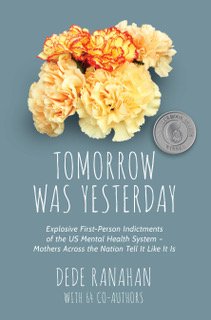Sweet sixteen wasn’t so sweet for me. As soon as I celebrated that birthday and started a new private school the same week, a dark cloud gathered over my mind. Instead of the public school hustle through hallways and crowds of students, the fewer classmates and feelings of being observed revealed a psychological distress I’d never known before. Soon, due to the switch in educational environments and a predisposed genetic case of bipolar disorder, my paradigm shifted and my mood dropped. I entered into a clinical depression that could not be prayed away.
Classmates and teachers with good intentions misread my quietness for my introverted personality. Maintaining my grades became a struggle, and the dark cloud turned into a storm. Hate and self-loathing became a daily battle within myself. I turned my back on God. Surely, death would be better.
By this point, I was desperate to feel anything but apathy and despair. I contemplated jumping out of the car on the highway, stabbing myself, or taking a bottle of Tylenol. The desires to make new friends, excel at academics, and tackle my amateur soccer skills waned. My parents noticed my change in demeanor and took me to a Christian psychiatrist by the new calendar year.
The psychiatrist prescribed an anti-depressant. That would have helped had I had a case of clinical depression. Unfortunately, unbeknownst to all of us, I had bipolar depression. Which meant that an anti-depressant alone would only serve to send me into a manic state of mind. With bipolar disorder, you typically need an antidepressant and a mood stabilizer or antipsychotic. The mood stabilizer would have helped me from getting too high toward the other “pole” of bipolar: mania. In my case, which is less common, I went into psychosis, a state of a break from reality where symptoms of delusions, hallucinations and more abnormal behaviors present themselves.
My speculation is that the psychiatrist switched my prescription a little less than two weeks after starting the antidepressant, after I complained of rapid weight gain. This “cold turkey” change messed with my mind’s equilibrium, and I launched into a state of psychosis where I heard voices, became paranoid, and exhibited unreasonable outbursts in school. Shortly thereafter, my parents admitted me to the juvenile psychiatric department of a local hospital to be monitored for the next three weeks.
Behind the secured doors of the unit, I found a crew of competent and compassionate caregivers. I also turned back to God. In fact, clinging to Jesus amid strangers and other youngsters battling their own internal struggles was a test of faith. Being able to lean on the nurses in the shadows of the valley of paranoia and reciting the Twenty-third Psalm with them brought me unspeakable comfort. From the nurses to the techs, the level of care I received was evident in the way they treated me and helped my parents to guide me through the hospitalization. Although my symptoms persisted, and finding the right medication was a trial-and-error process, I was in the best place to find a solution to my fractured mind.
After discharge, I was sent to an outpatient program during the remainder of the school year and summer. My teachers graciously assisted me in completing my schoolwork and passing the grade. I returned to the public school the following fall and finished my high school career at the public high school. By getting back to a routine, I returned to the creative, introverted, driven person I had previously been. My mental health improved as time went on, as long as I took my medicine and kept my psychiatrist and therapist appointments. I maintained a fully functioning level of life and was able to graduate high school, enter and complete college, meet and marry my husband, and lead a fully functioning, abundant life.
None of us are immune to the effects of mental illness, whether it is diagnosed in someone we know personally or ourselves. It can be a scary place to travel through and the journey can be long and dark. My psychotropic medications have continued to help keep my brain chemicals balanced, and more than that, I have the strength in our Lord who makes all this possible.
If you or someone you know are experiencing extreme changes in normal behaviors to prevent you from healthy functioning in life, reach out to a mental health professional. And if you or someone you know are in crisis, call 9-1-1. To reach the National Suicide Prevention Lifeline, call 1-800-273-8255, or text 741741 for a text-based method.
The information included in this article is not intended to treat, diagnose, or medically advise.
About the author: Katie R. Dale has authored But Deliver Me from Crazy: A Memoir, on her experiences through the psych wards into recovery, and blogs regularly regarding her reconciliation of her Christian faith and mental illness on KatieRDale.com. She’s on social media @KatieRDale and when she isn’t caring for her daughter at home, she is out training for a half marathon or 5k with her running friends. She resides in Eglin AFB, Florida with her hero in uniform, Chris, and daughter Kylie Grace.
Katie R. Dale










